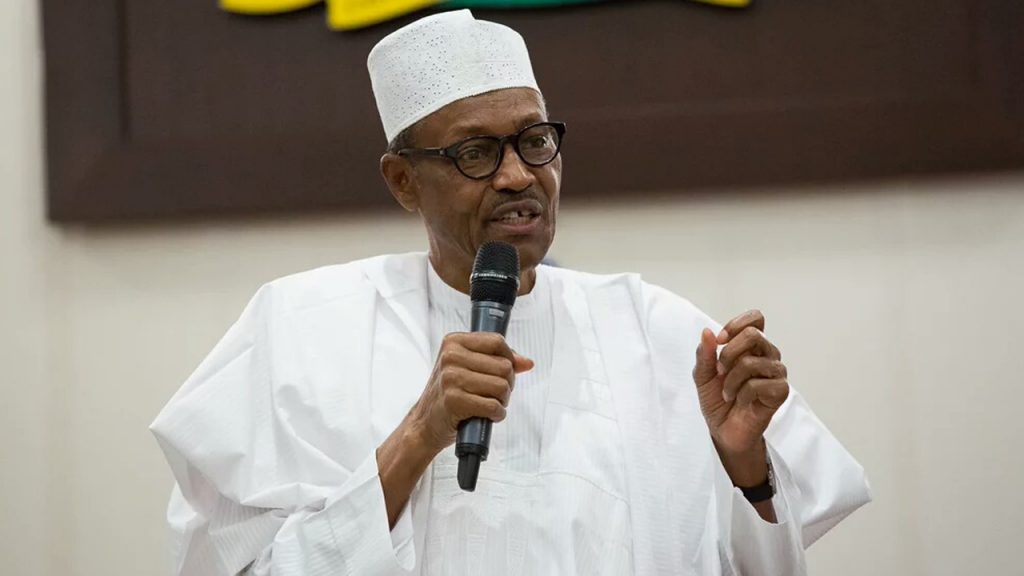President Muhammadu Buhari has enlisted the support of the World Bank, International Monetary Fund, IMF, world security agencies and friendly nations to locate, recover and also assist in repatriating stolen assets.
Buhari who stated this on Wednesday in New York called on Africans in the Diaspora to come up with suggestions on how to curtail the menace of corruption on the continent.
Addressing participants at the High Level Media Launch on “Illicit Financial Flows and the Fight against Corruption: Curbing the Existence of Safe Havens, the Role of Africans in the Fight against Corruption,” organised by the NEPAD/APRM Nigeria on the sideline of the 73rd Session of the United Nations General Assembly, UNGA, the President also enjoined them to support measures against “safe havens” for illicit financial outflows from Africa.
A statement by Femi Adesina, the Special Adviser to the President on Media and Publicity, Thursday, the President told the audience that he had “enlisted the support of multi-lateral institutions like the World Bank, IMF, security agencies, and friendly nations to locate and recover and help repatriate stolen assets.”
Describing corruption as a cancer which required global efforts to contain, President Buhari recalled that the negative impact of corruption on the continent informed the resolve of African Heads of State and Government to remain committed to the fight against corruption.
According to him, it is the reason 2018 was declared as the Africa year to combat corruption, with the overriding theme, ”Winning the Fight Against Corruption: A Sustainable Path to Africa’s Transformation.”
He commended his fellow African leaders for the honour bestowed on him as the African Union Anti–Corruption Champion to lead the continental War Against Corruption in 2018 and beyond, the President noted that the change agenda of his administration “has overhauled, revitalized and institutionalized the machinery for an out and out fight against corruption and its agents, with a particular focus on illicit financial flows.”
While acknowledging that the social and economic costs of corruption and illicit financial flows were massive, and had continued to impede the development of Africa, he cited a 2015 study by an African Union Panel, led by Thabo Mbeki, which estimated US$50 billion illicit financial flows out of the continent every year.
He said: “According to the report, about US$2.5 billion of the US$50 billion of Illicit Financial Flows was in respect of commercial activities.
”It is obvious that the continent still battles with grand corruption at the highest level, with safe havens, opaque systems in many recipient countries and the outright willingness of some advanced countries to harbour stolen funds from Africa.”
Listing some of the negative impact of illicit financial flows out of the continent to include draining of foreign exchange reserves, reduction of tax/revenue collection, poor investment inflows and escalation of poverty, the President noted that these “nefarious practices are being perpetrated by some of the 60 international tax havens and secret jurisdictions with thousands of disguised corporations, shell companies, anonymous trust accounts, fake charitable foundations, money laundering and transfer pricing mechanisms.”
He said efforts were now being made by African leaders to checkmate these ills and ensure greater transparency and accountability in government business.
“One of the measures necessary if we are to make any headway is to bring in laws, regulations and policies that encourage transparent financial transactions, as well as implementing measures that would mitigate the incentives that facilitate illegal outflows from the continent,” President Buhari said.
He recalled that during the January 2018 AU Summit, he pledged to organise African youth congresses against corruption in order to sensitise and engage youth in the fight against corruption; mobilise African Union member states to implement African Union Convention on Preventing and Combating Corruption; and advocate the strengthening of the criminal justice system across Africa through exchange of information and sharing of best practices in the enforcement of anti-corruption laws.”
On the measures taken at the domestic level to curb corruption in Nigeria, Buhari said a mechanism had been put in place “for budget implementation and monitoring as well as assessing the impact on the lives of the citizens
“The Federal Government had successfully commenced implementation of a whistle blowing programme and so far tens of millions of Dollars have been recovered.
”As part of the global initiative, Nigeria has joined the open Government Partnership, OGP, having been committed in 14 areas which are categorized into four thematic areas as follows: promoting fiscal transparency; access to information under FOI Acts; Anti-Corruption and Asset disclosure and Citizens’ Engagement and Empowerment.
“The above measures have not only assisted in alleviating fears of foreign investors, but have also attracted billions of Dollars in portfolio investments since April, 2017.”
President Buhari also noted that the “enforcement of the Bank Verification Number, BVN, has helped in no small measure to identify and curb the deep-rooted corrupt practices by looters of government revenue with multiple accounts.
“In the first quarter of 2016, I embarked on trips to the Middle East to sensitize their governments on the need to return stolen assets and hand over the looters for trial in Nigeria.
”In January 2017, Nigeria and UAE signed judicial agreements on extradition, transfer of sentenced persons, and mutual legal assistance on criminal matters.
“In March 2016, the Federal Government and the Swiss government signed a letter of intent on the restitution of illegally acquired assets forfeited in Switzerland.”
He added that under the agreement, the “Swiss government would repatriate $321 million USD illicitly acquired.”
Buhari affirmed that machinery had also been set in motion for monitoring, assessing and reporting on the UN 2030 Goals on Sustainable Development.”

